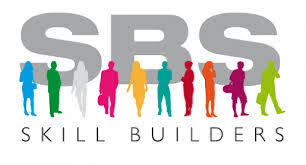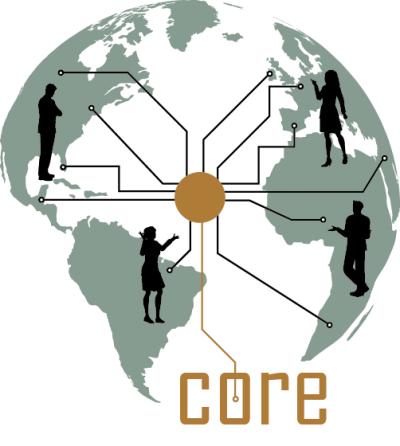What is mentoring?
Mentoring to work is a very useful tool for supporting highly educated newcomers to find a job or to build a sustainable path towards a job. Any volunteer who has knowledge, experience and network in own sector/domain can be a mentor. Please watch the following video to know more about mentoring.
Practical information on mentoring
Some practical information might be useful for both mentors and mentees who are starting a mentoring process. Please find more information in the following slides.
Download DocumentSix domains of mentoring
Entering a local labour market requires getting to know the local customs and systems, and responding to them. We defined 6 relevant domains that help a newcomer to better understand the Flemish job market and its habits. So that the way of applying for a job, and the preparation for it, can be tuned.
The six topics can be found on the figure below.
By clicking on one of the circles you will be directed to a page with more information on (i) how to structure mentoring sessions on this topic and (ii) find direction towards supporting questionnaires and exercises.

Skills, Talents & Aspirations
Before the session
- Invite mentee to prepare a few reflection exercises that can help to reveal:
- Strengths
- Lifeline (MESH workbook for mentoring)
- Mindmap of your know-how
- 360° feedback
- Aspirations
- Look back on the future > Download
During the session
- Make an inventory of the mentee’s skills > Download
- Fill out 1st part of the Career Passport & further complete this during the journey
Material / Links
- All-in-one 4HER > Orientation webpage (Work / Roadmap to a job / Orientation)
- Know yourself better > invest in your strengths
- NIMAP tool ‘Setting your new job goals’
- Our tool 'Career Passport'
- List of helpful tools > don’t hesitate to share other relevant material that we can add in this list!
- MESH workbook for mentoring

CV / Resume
Before the session
- Ask mentee to send you his/her CV upfront or download it from his/her profile on the platform (or to bring it to the session)
- Invite mentee to check on the platform the information on writing a CV/resume
During the session
- Give feedback on the current CV
- Style
- How attractive is the look & feel?
- A nice template can make a difference (cf. resume templates in MS Word, online templates)
- Content (cf. career passport)
- Enough focus on what the mentee can offer (skills & experience, talents & aspiration)? (vs. diploma’s, loyalty, …)
- Is a career objective included (a top paragraph outlining relevant skills of mentee + what career one is seeking)
- Career gaps
- If gaps in the career, how can you draw the attention away from it, or make it a strength?
- Iterative process: Ask the mentee to integrate the feedback by the next session; then review again
Material / Links
- All-in-one4HER > Work > Roadmap towards a job > CV & Motivation letter
- Guidelines for CV writing
- NIMAP tool ‘Preparing your CV & Cover letter’ (standard Belgian CV – guidelines – gaps – layout – CV examples)
- List of helpful tools > don’t hesitate to share other relevant material that we can add in this list!

Motivation / Cover Letter
Before the session
- Invite mentee to check on the platform the information on writing a motivation letter
- Ask mentee to share with you the vacancy + 1st draft of the motivation letter.
During the session
- Give feedback on the 1st draft.
- Make sure all key topics are covered
- Introducing oneself
- Mentioning the (kind of) job one is applying for (or looking for)
- Showing that one’s skills & experience match the skills & experience needed to do the job
- Encouraging the reader to read the CV
- Finish with a call to action (e.g. asking for an interview or a meeting)
- Keep it short (max 1 page) + find out who to address it to
- Matching cover letter to the job
- Summarize why you are right for this job (linking your skills to the job requirements)
- Tailor your cover letter to the company (what is appealing for you to work for this company)?
- Make sure that the reader can ‘read’ your motivation & eagerness to go for this job
Material / Links
- All-in-one4HER > Work > Roadmap towards a job > CV & Motivation letter
- Motivation letter
- NIMAP tool ‘Preparing your CV & Cover letter’ (guidelines – Cover Letter examples)
- List of helpful tools > don’t hesitate to share other relevant material that we can add in this list!

Personal Branding & Networking
Before the session
Personal Branding - Learning to sell yourself
- Invite mentee to check on the platform the information on Networking & Social media , especially the Networking Guide and NIMAP tool ‘The importance of Networking’.
- Ask mentee to prepare the 3 questions of section 4
- Who are you?
- What is your story?
- Why do you want to work in that field/company/job?
- Invite mentee to check the MESH Workbook for mentoring, section ‘My networks – network map’ and ask mentee to reflect upon the reflection questions of this section:
- Who are in my network?
- Who do I wish to be in my network?
- How can I grow my network?
- What can I give to my network? How can my network help me?
Networking - Making effective use or your network
During the session
Personal Branding - Learning to sell yourself
- Make sure the mentee’s resume stands out, including a compelling career objective
- Assist the mentee in perfecting his/her elevator pitch (on the platform + practice on ‘selling him/herself’ with confidence
- Identify what is needed for mentee to network more effectively? (Strengths & weakness in network? – what elements/skills to develop to be able to network more effectively? - …)
- Polish LinkedIn as most important online business network
Networking - Making effective use or your network
Material / Links
- All-in-one4HER > Work > Roadmap towards a job > Networking & Social Media
- All-in-one 4 HER platform with S-V-E-P-T* posts to improve your network in Flanders. (* S-tudies, V-acancies, E-vents, P-rojects and T-ools)
- All-in-one 4 HER platform > Work > Organisations and Members
- Professional networking on LinkedIn (workshops – articles - …)
- List of helpful tools > don’t hesitate to share other relevant material that we can add in this list !!
- NIMAP tool ‘The importance of Networking’
- MESH Workbook for mentoring (My networks – network map)
- Networking Coaching Guide

Find vacancies
Before the session
- Invite mentee to actively look for suitable vacancies + to experiment with job sites available on platform (*)
- For each suitable vacancy identified: to what extent does it match with his/her Career Passport (= list of criteria)
- If needed: add relevant features to your Career Passport.
- Mentor can send relevant vacancies to mentee on the platform
During the session
- Discuss the vacancies.
- Challenge mentee his/her suitability for the job.
Material / Links
- All-in-one4her > Work > Roadmap to a job
- Orientation (most recent bottleneck jobs – vacancies booming)
- Job search (job search platforms – temporary job agencies - temporary jobs)
- List of helpful tools don’t hesitate to share other relevant material that we can add in this list !!

Preparing for a job Interview
Before the session
- Invite mentee to read on the platform the information on a Job Interview , and to prepare for a role-play with you in preparation for the job interview.
- Ask the mentee to send you the vacancy for which he want to try out the job interview.
During the session
- Assume the role of interviewer, and do a dry-run of the interview. Use the checklist of most common interview questions + killer questions (cf. NIMAP tool)
- Use the STAR-method (cf. NIMAP tool) to evaluate the skills of the mentee the STAR-method is also a great way for the mentee of preparing convincing examples of key requirements for the position.
- Observe body language, check whether the answers of the mentee are to the point and convincing,
Material / Links
- All-in-one4her > Work > Roadmap to a job > Job Interview
- Job interview process
- Get prepared!
- Interview guidelines
- List of helpful tools don’t hesitate to share other relevant material that we can add in this list !!
- NIMAP tool ‘From first call to getting hired’
- Tips & tricks of Monster
- Complete interview guide of Robert Walters
- VDAB course “Job application” ( Solliciteren doe je zo!)
Structure of a mentoring session
It might be helpful to follow a structure for the mentoring meetings. Below a 5 step mentoring process is defined. You find more information by clicking on the steps. You can anchor each meeting on a summary check for the first meeting, and the following meetings. (doc’s summary check first meeting and summary mentoring meetings)
Five step mentoring process: every single meeting
02
Ask how the other is doing
Check if something needs to be said before starting
03
Make the goal very concrete (SMART, well-defined)
Design a step-by-step plan/strategy
04
Make a next appointment: Date? Topic? Prepare?
05
Check the ecology: how do mentor and mentee feel about the collaboration?
SET THE FRAME
Be aware you’re in a mentoring sessions
Download Summary check-in Document Download Summary each session DocumentMAKE RAPPORT & GET TO KNOW EACH OTHER
- The First Session
- Present yourselves (in steps, go with the flow)
- Why did you both enter this mentoring programme?
- What do you both expect of the mentoring?
- Practical agreements on the meetings/frequency/… (Share the essentials)
- Your communication style preference (diplomat or direct) and what you really like in communication.
- Sample Structure of a Session
- Say hello, ask how the other is doing, is there something that needs to be told before you can start,…
SET THE GOAL FOR THE MENTORING
- The First Session
- Use the journey to agree on the most important topic at that moment
- Ask the question “When we’ll end this session, what do you want to take home?” or “When would you consider this meeting succesful?” or…
- Define the outcome of the topic and make it ‘well-defined’ (use the 1-2-3 of coaching guideline)
- Go through the questions of the outcome model and make an overview of the issue
- Stress strengths and define what can be added to reach the goal
- Sample Structure of a Session
- Define the outcome of the mentoring journey as a whole (Set the Mentoring goal). Ask questions like “When we’ll end this session, what do you want to take home?” or “When would you consider this meeting succesful?” or…
- Focus on the present situation of the mentee, and watch the preconditions (housing, space to focus on a job,…)
- Define the first step, the first topic to work on
MAKE CLEAR AGREMENTS – PREPARE FOR THE NEXT MEETING
- The First Session
- Make a next appointment
- Define the topic of the next meeting
- Check if something needs to be prepared
- Sample Structure of a Session
- Resume the topics covered, define the take away’s
- Make clear agreements about plans and actions
- Schedule the next meeting (platform), maybe also the topic
- Define some ‘homework’ if necessary. Anything to prepare/reflect upon by the next session?
EVALUATE THE WAY OF WORKING
(starting form what’s going well)
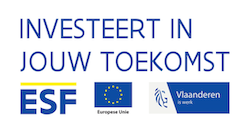

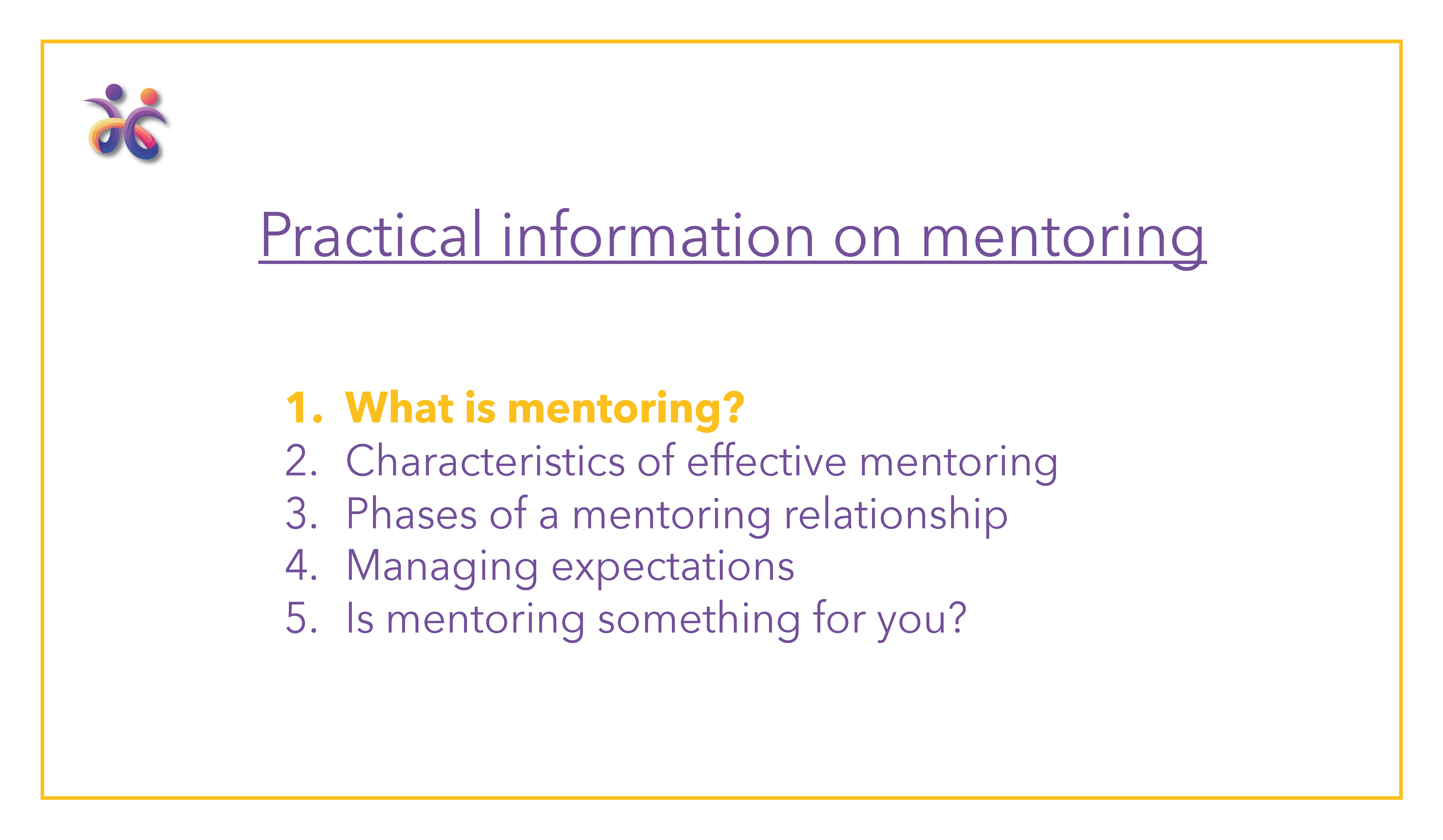
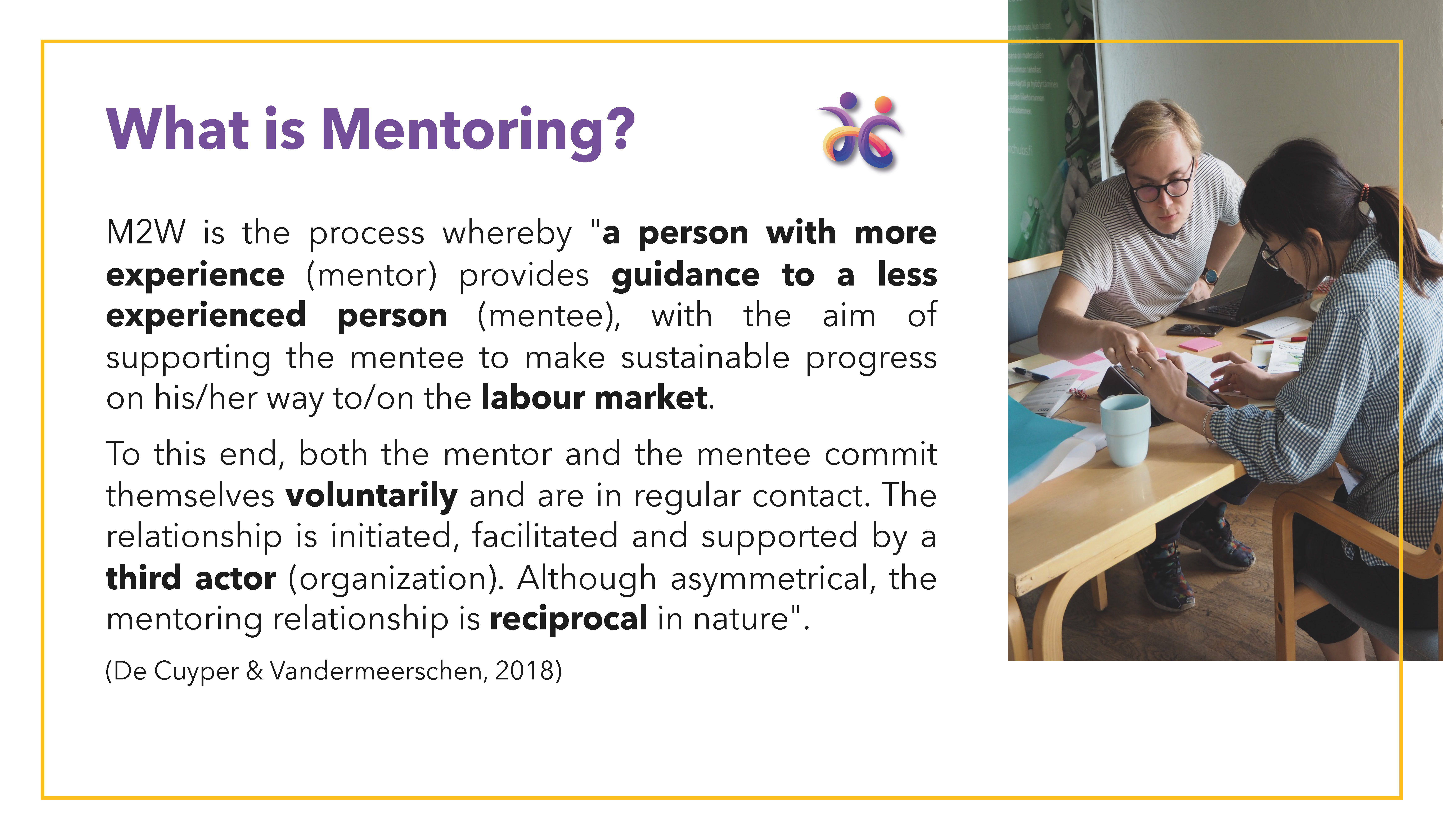
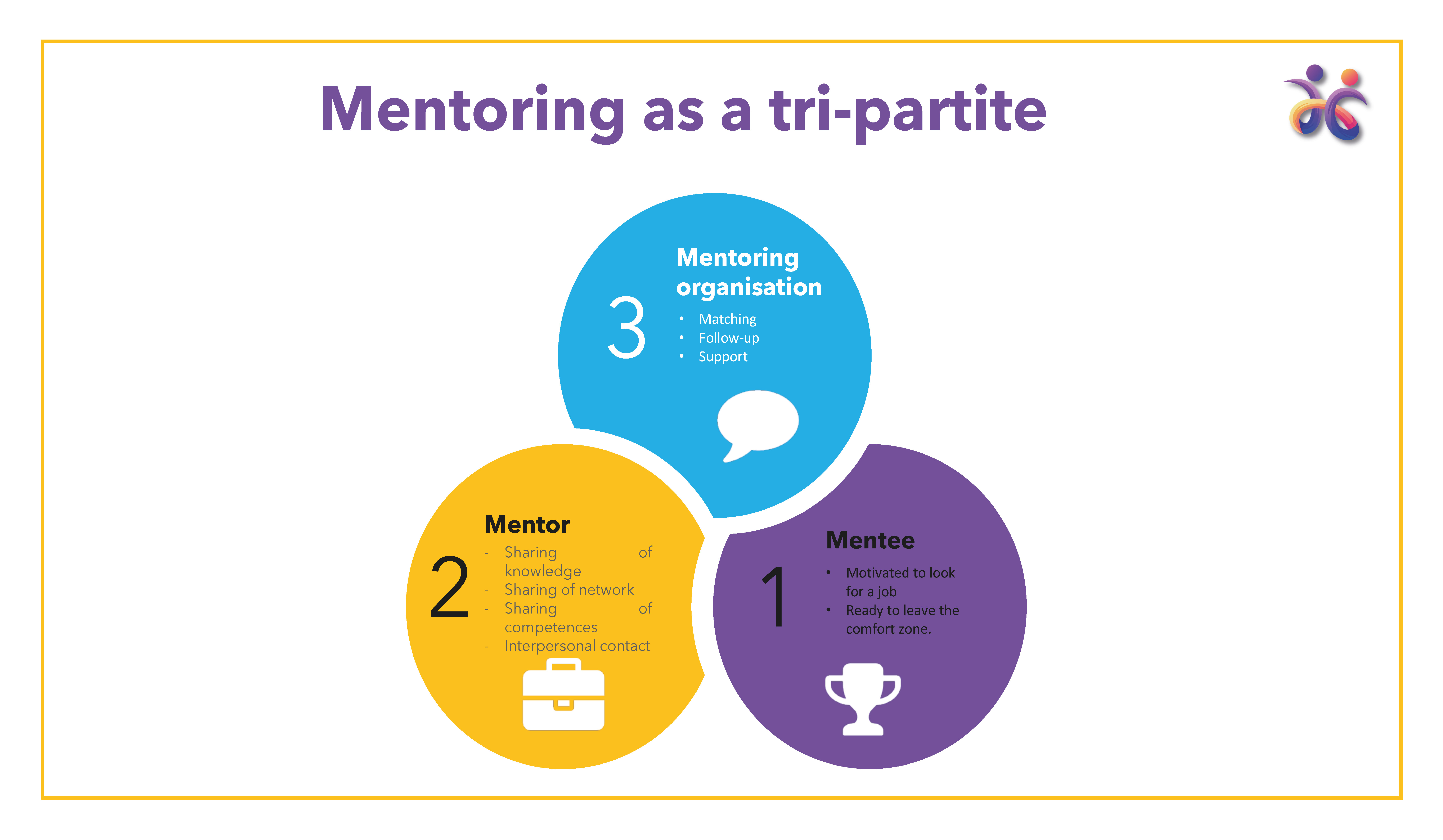
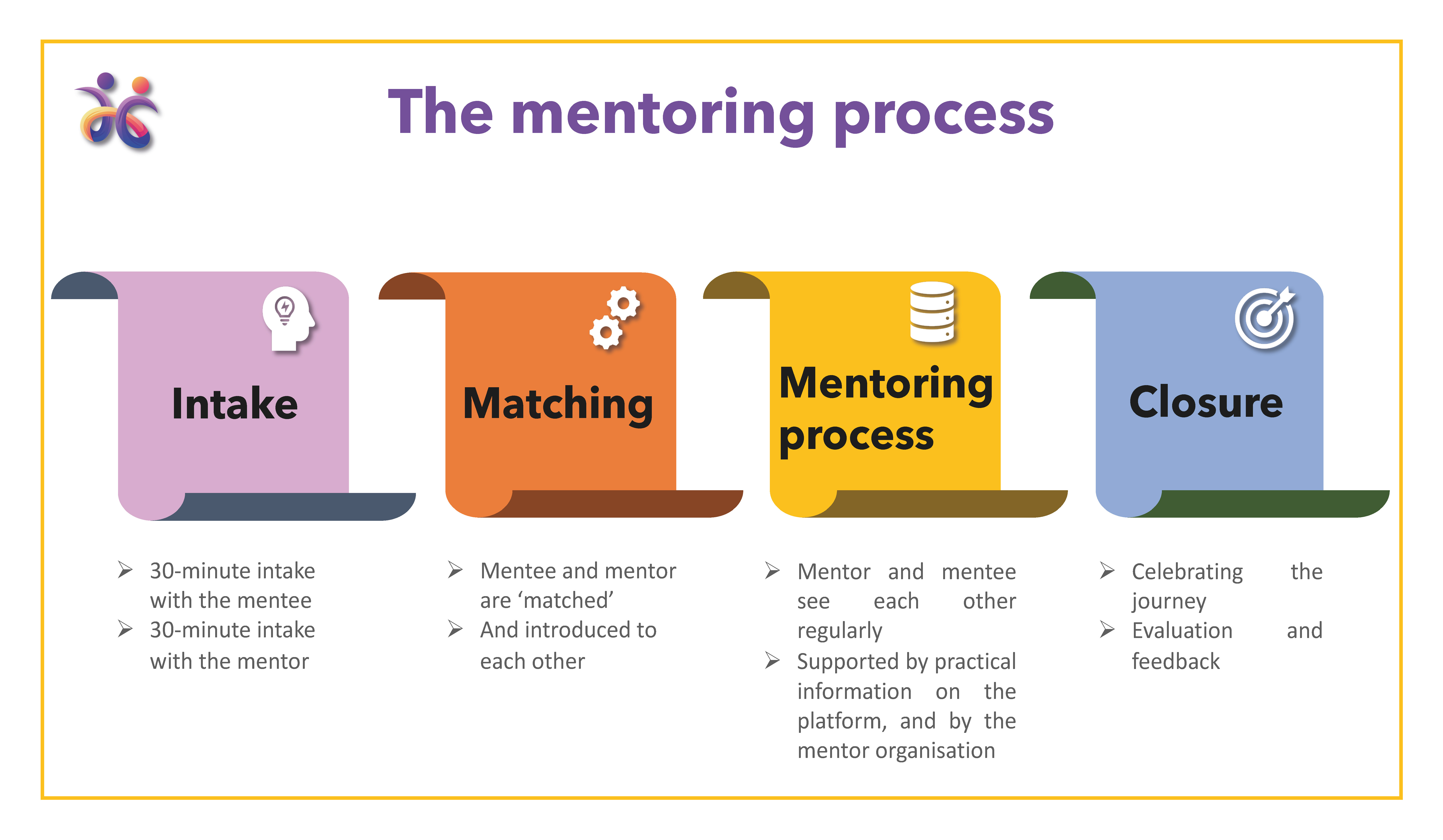
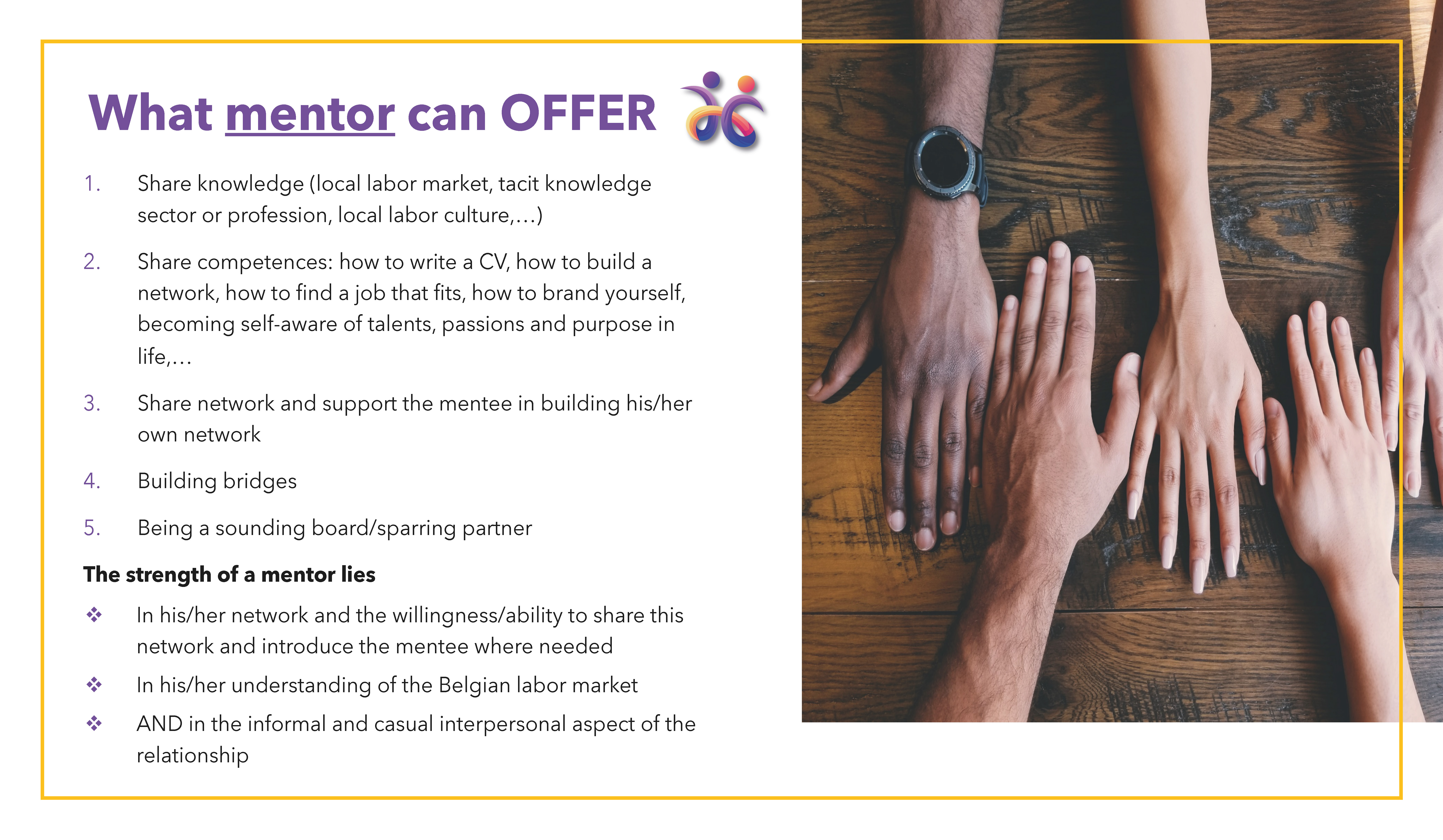
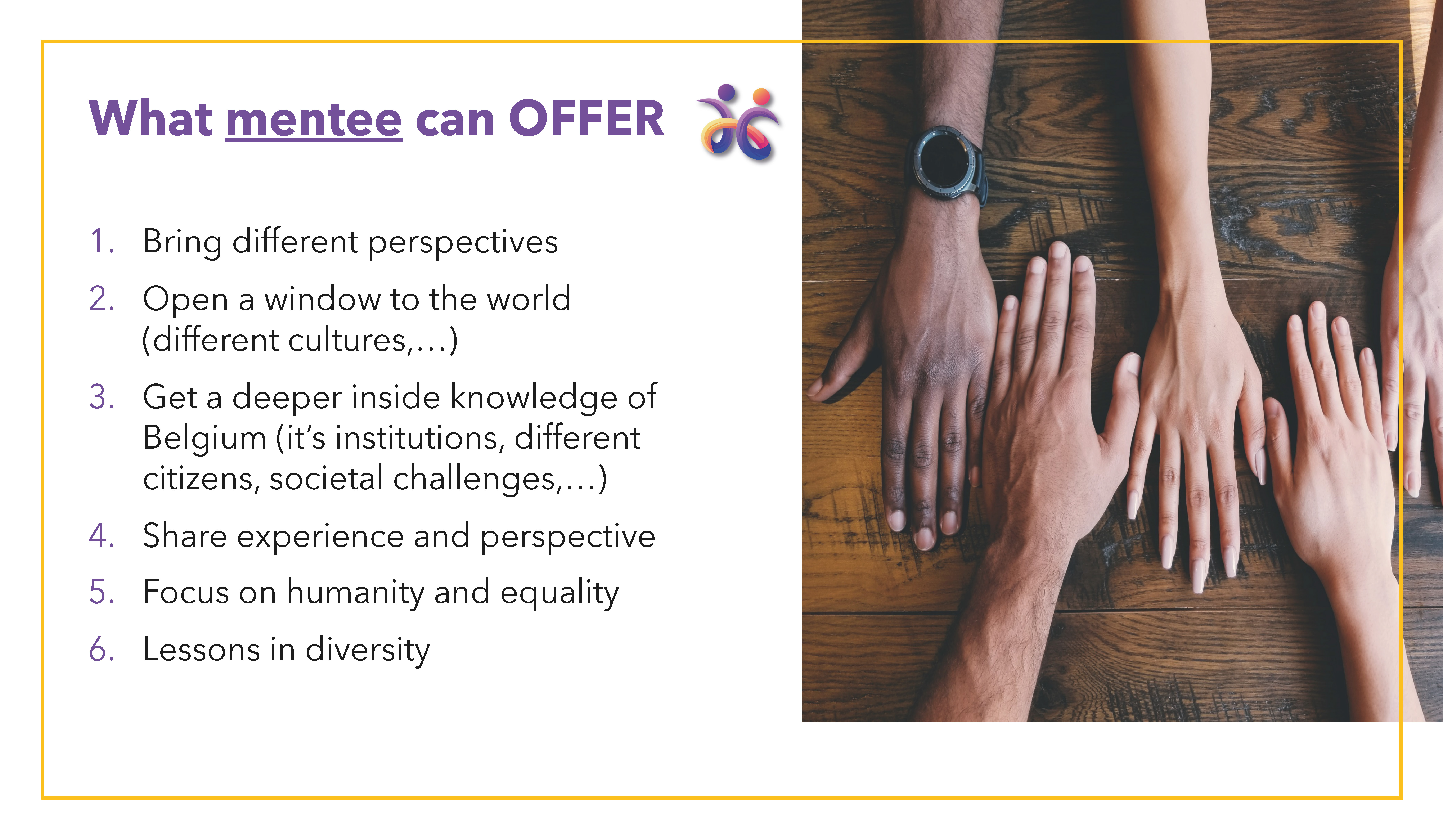
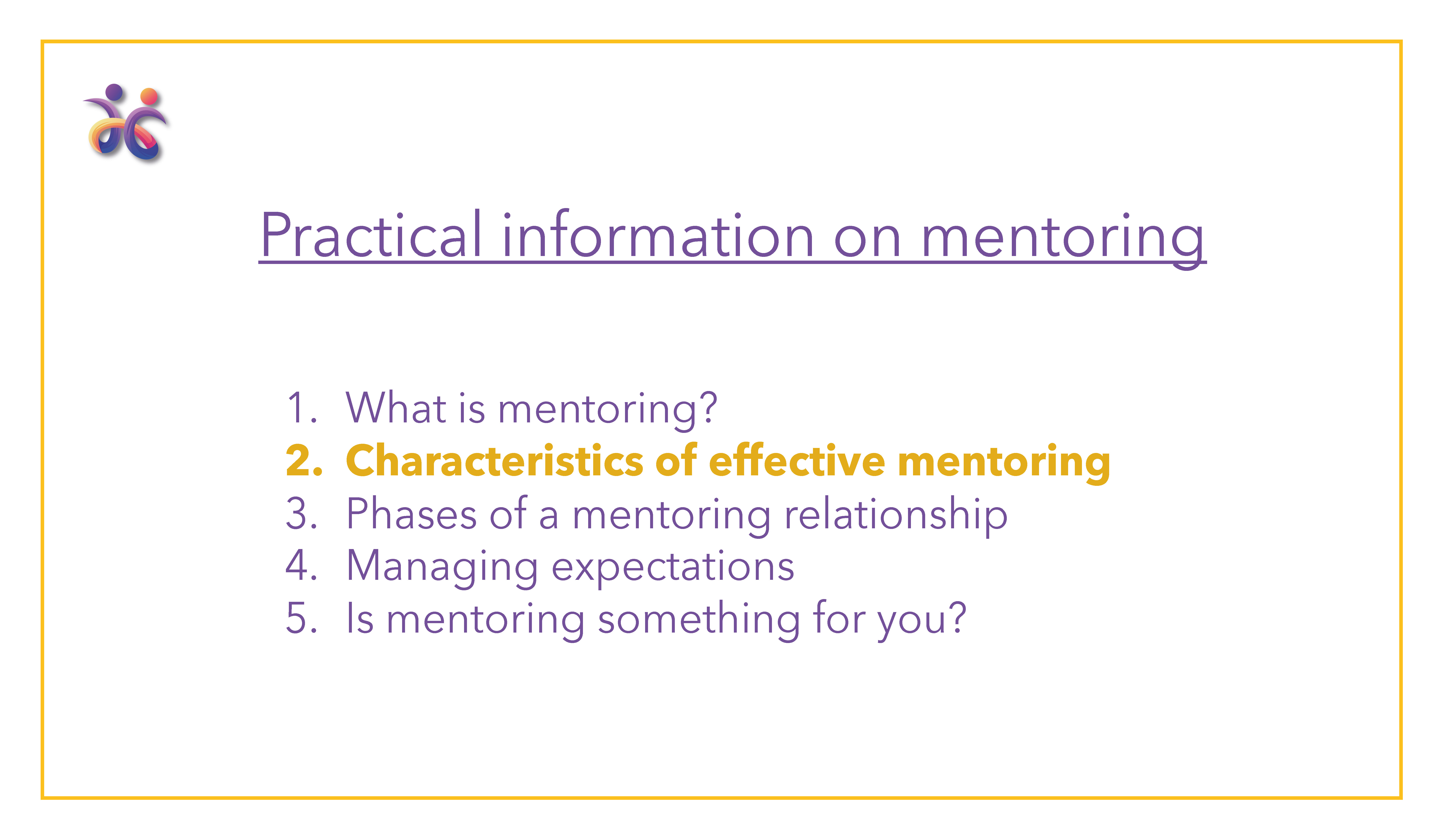
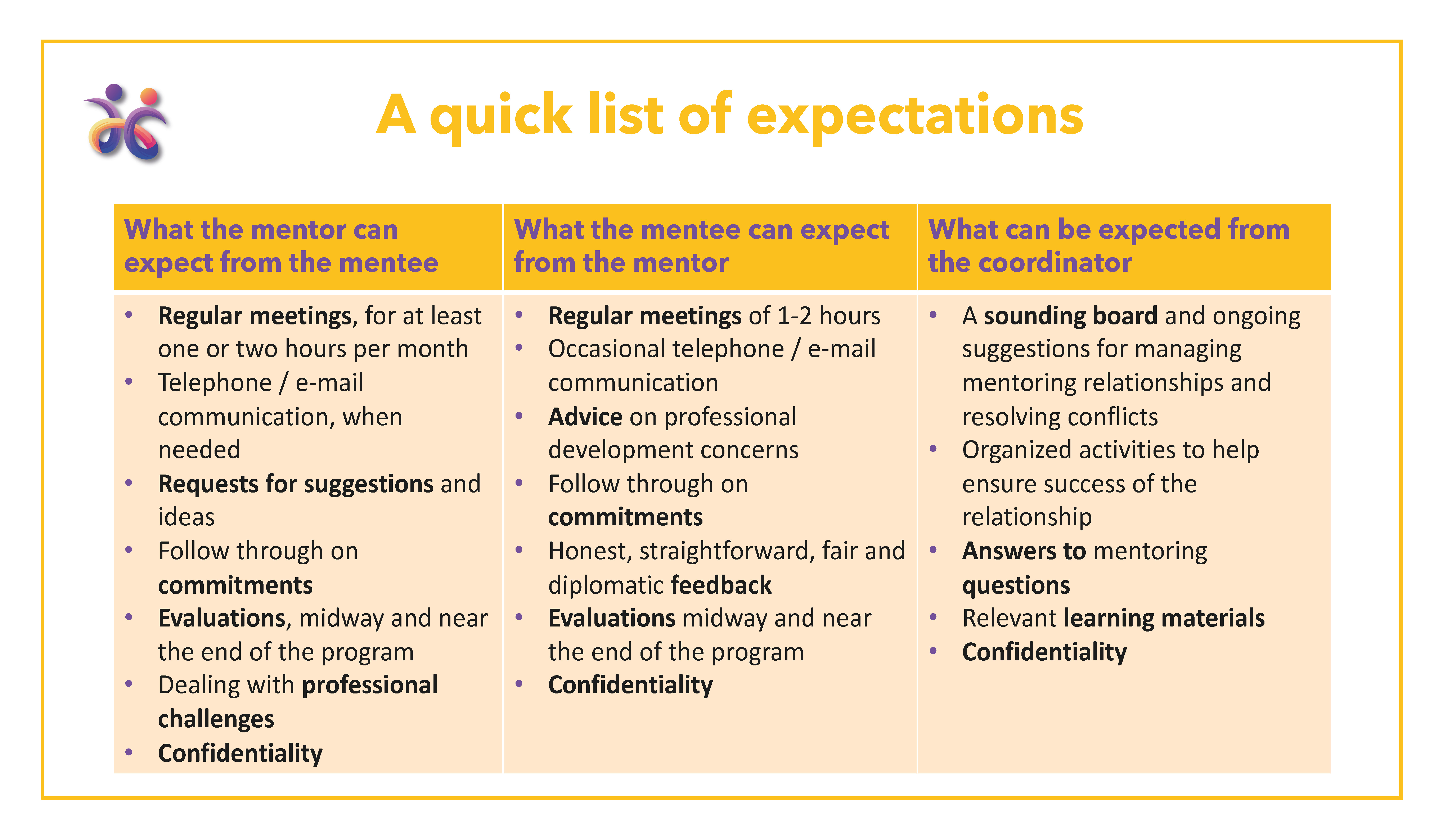
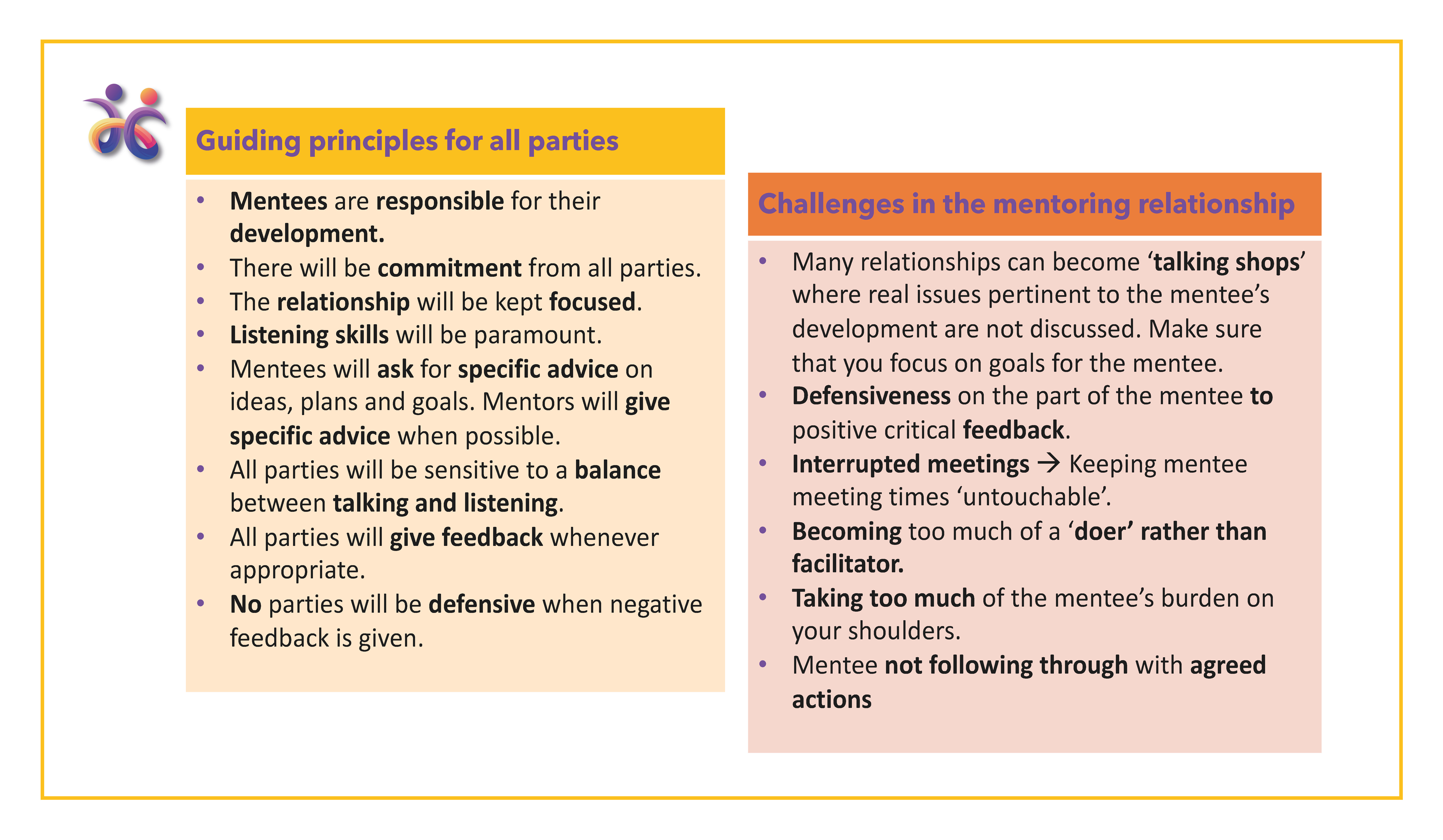
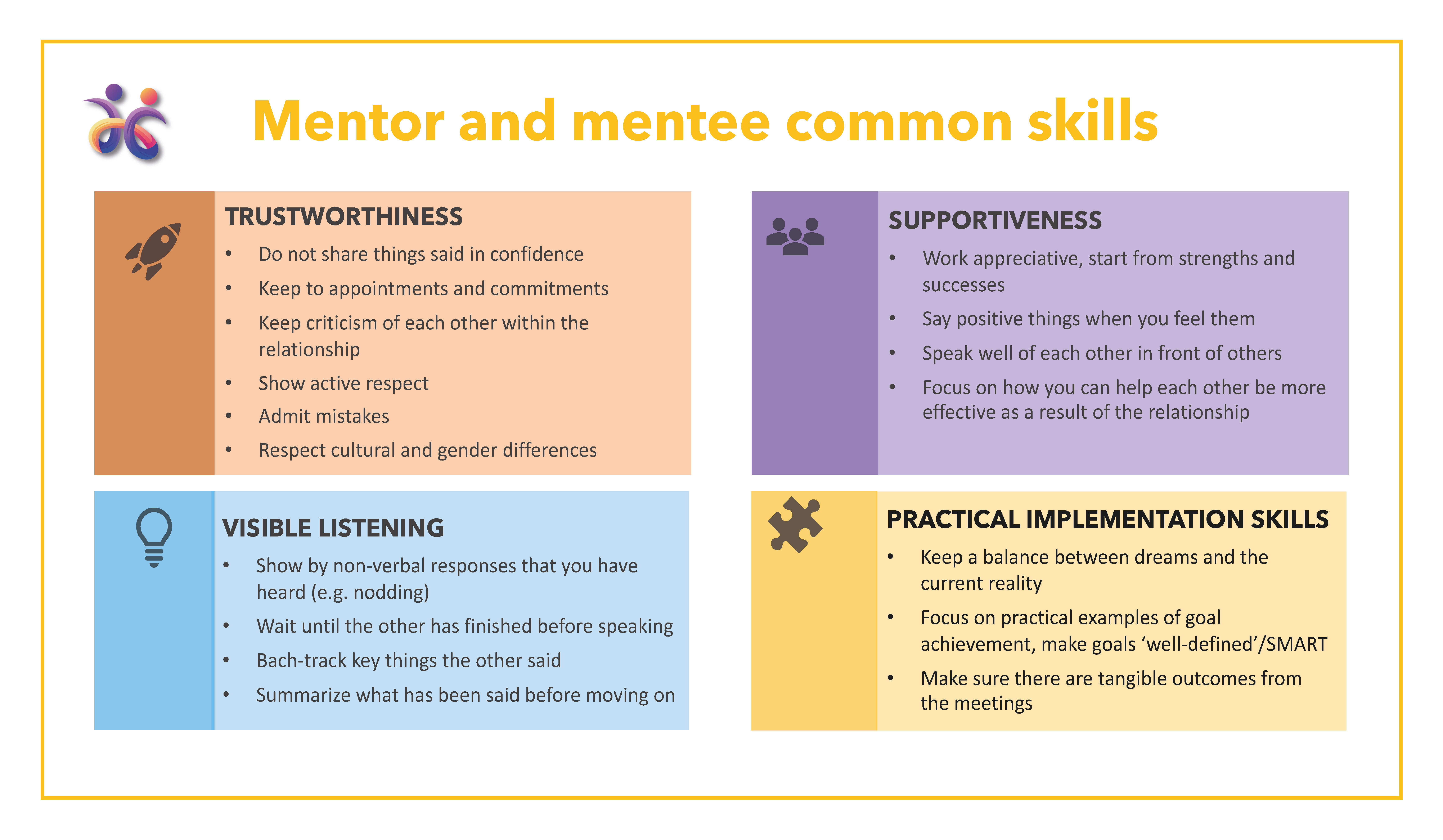
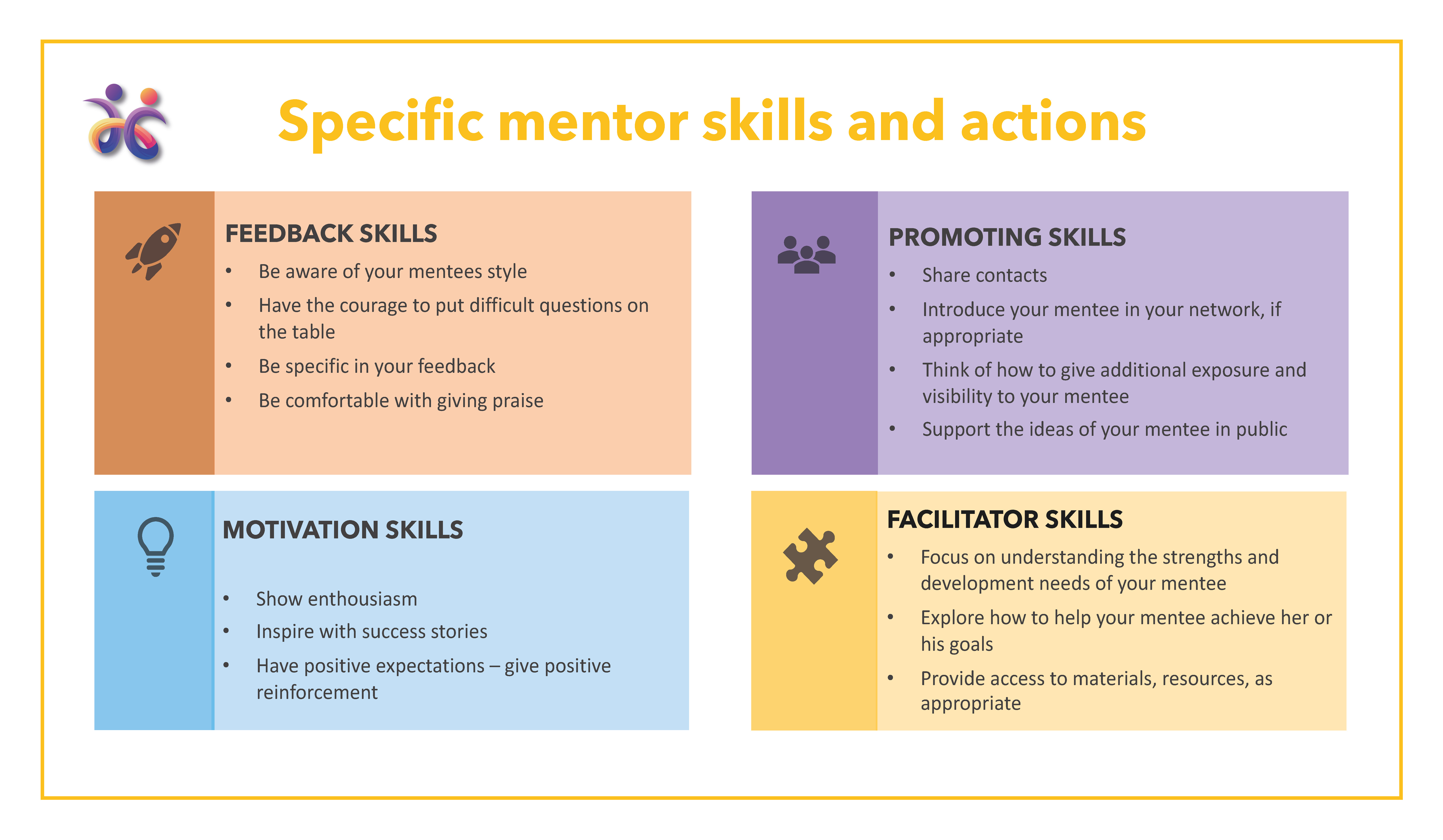
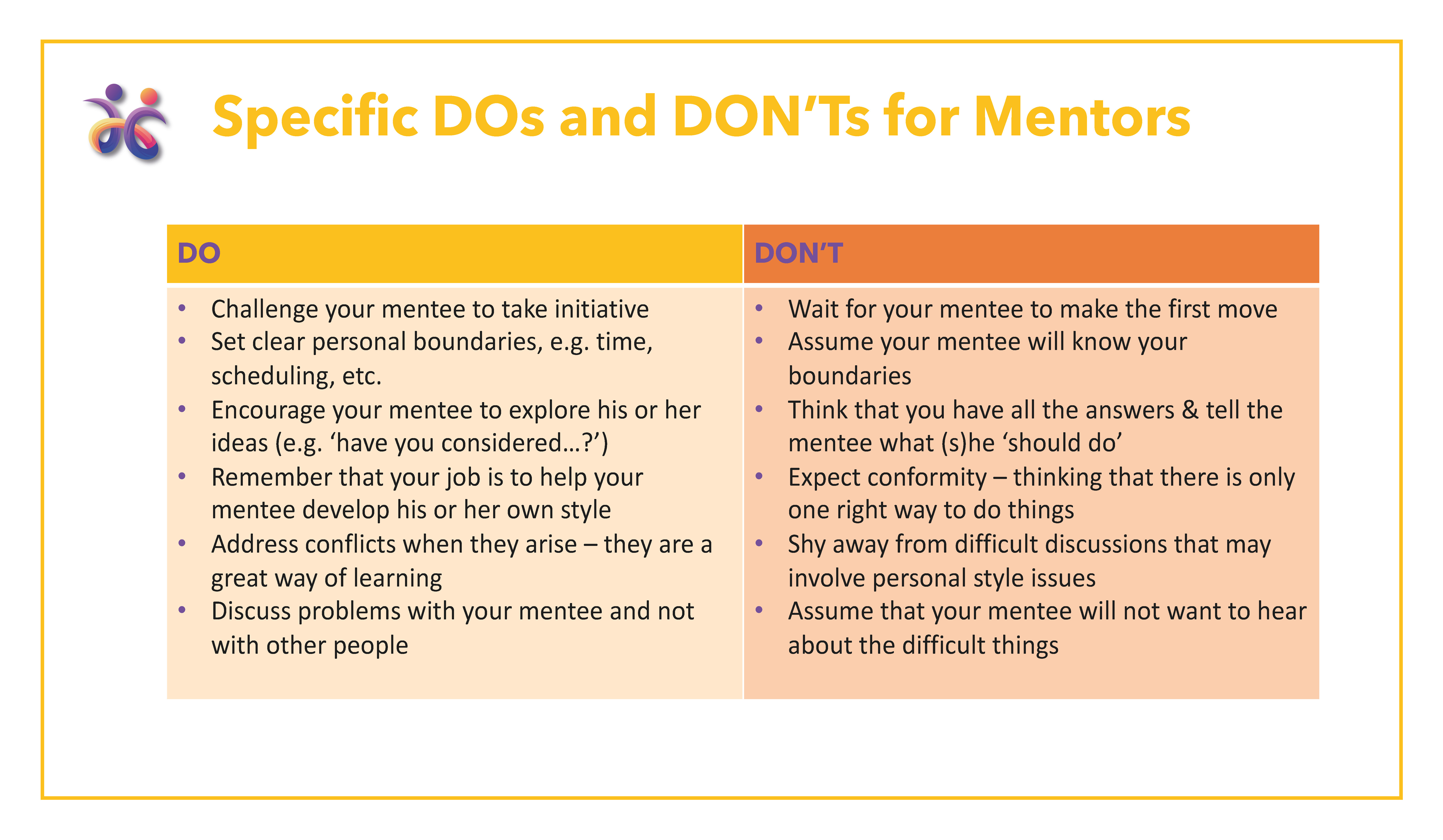
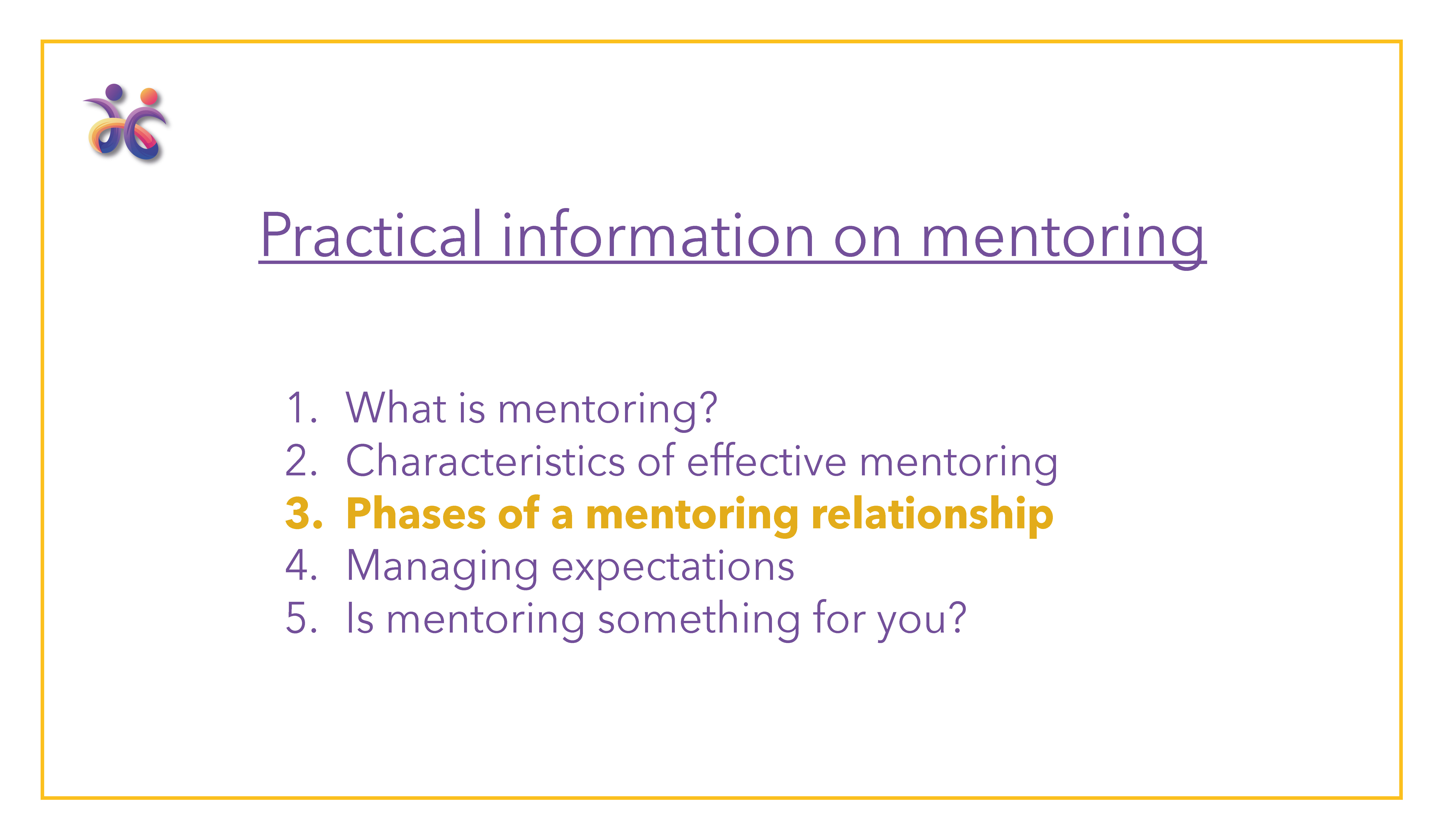
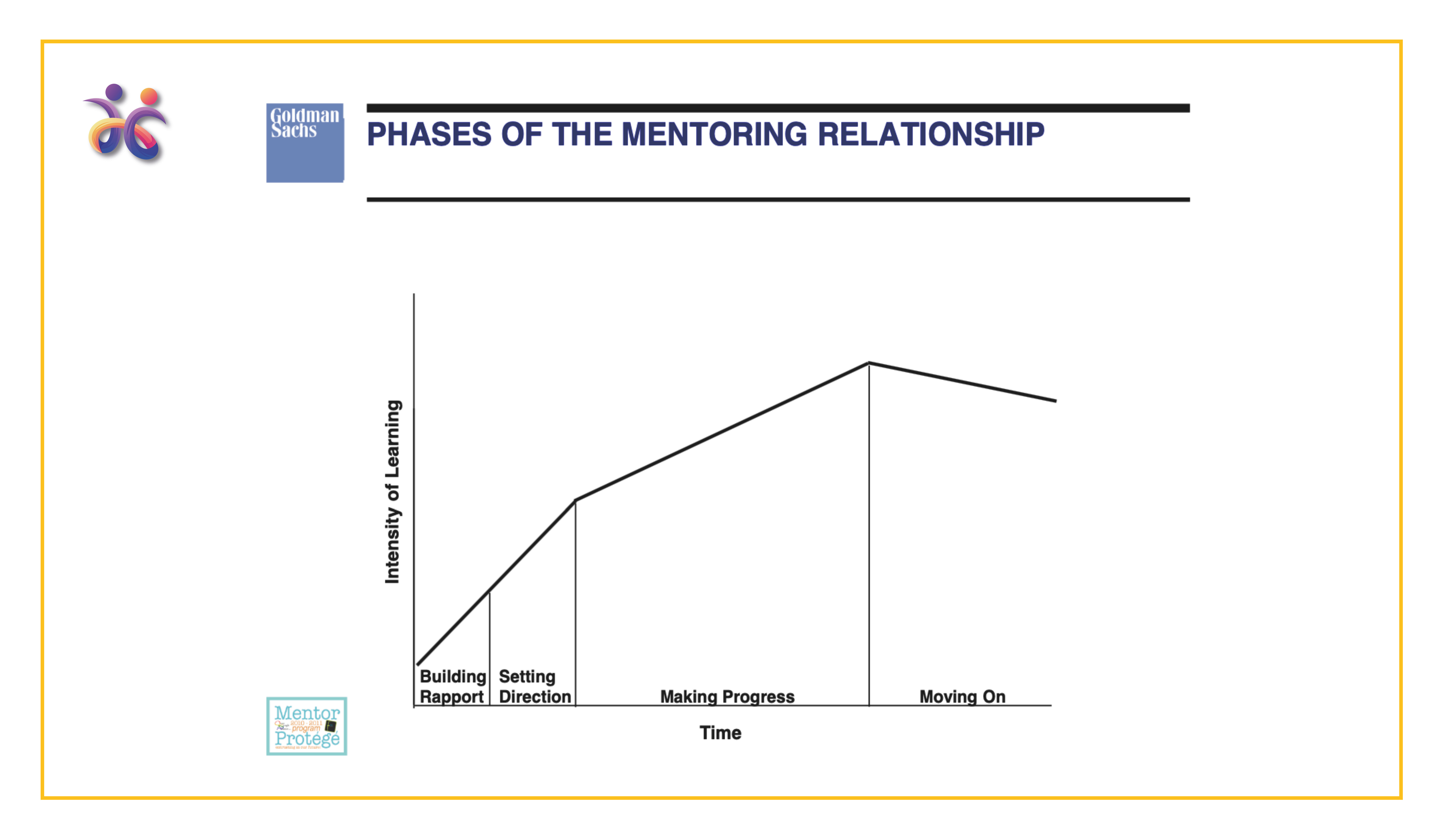
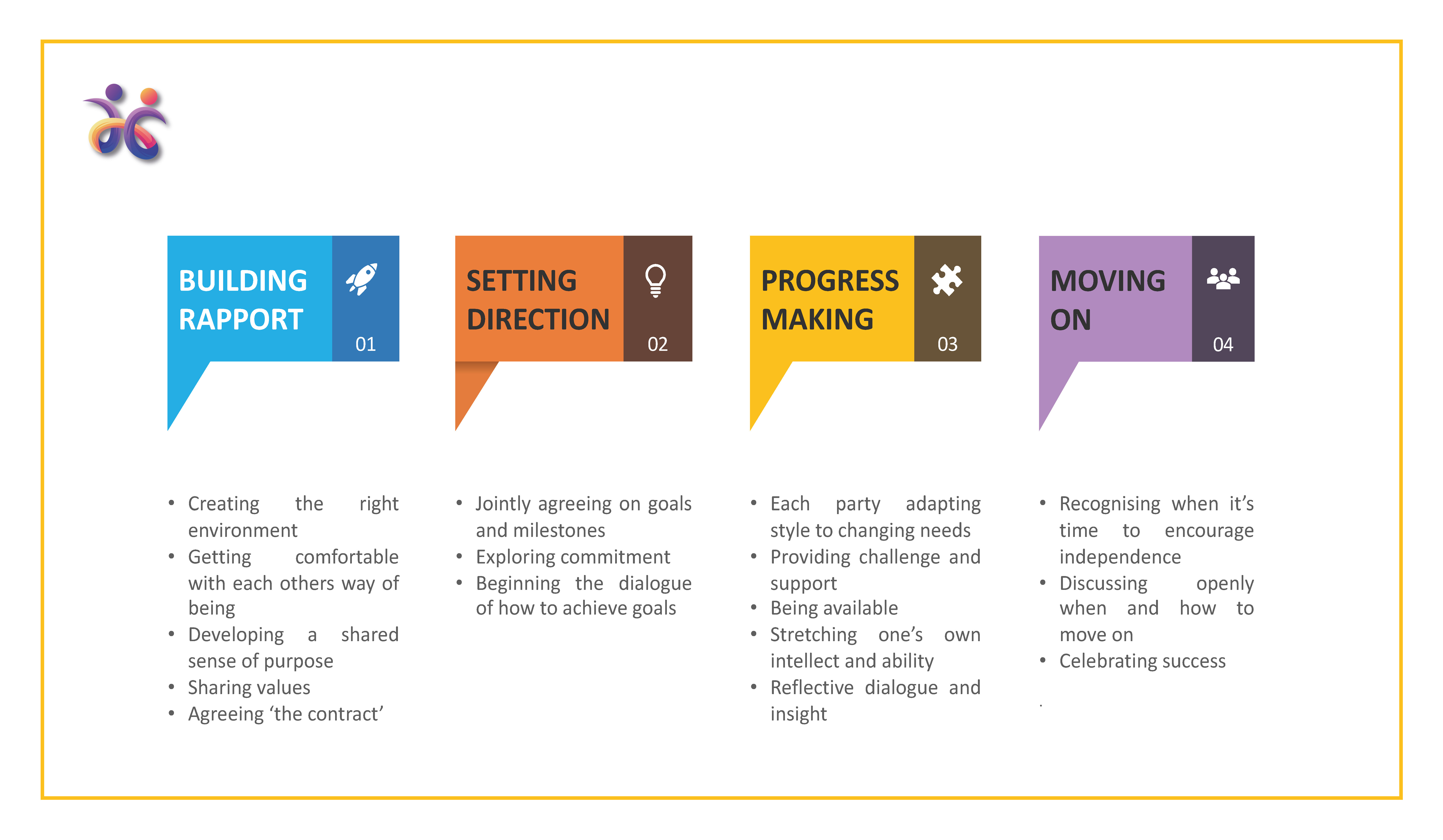
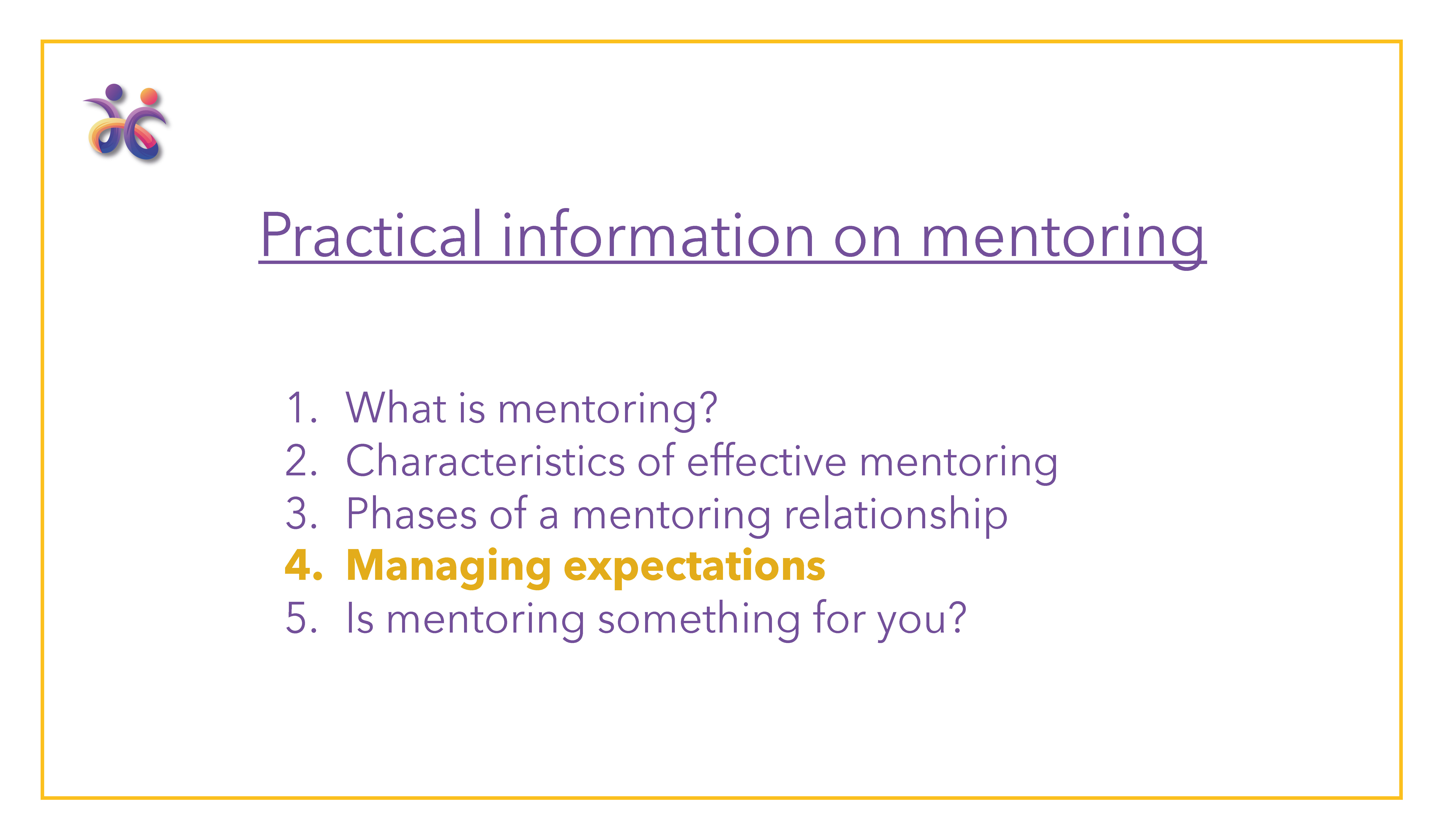
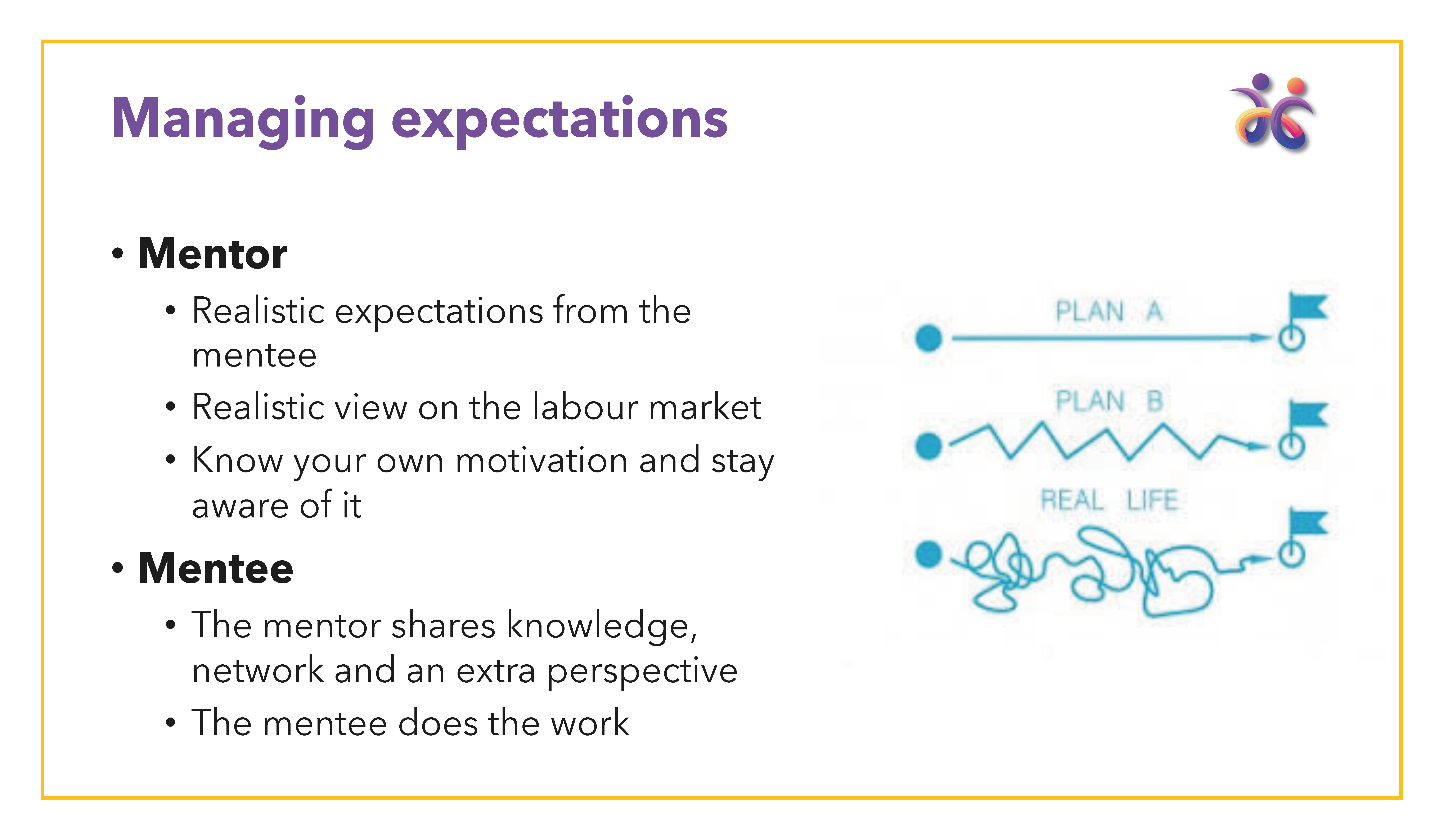
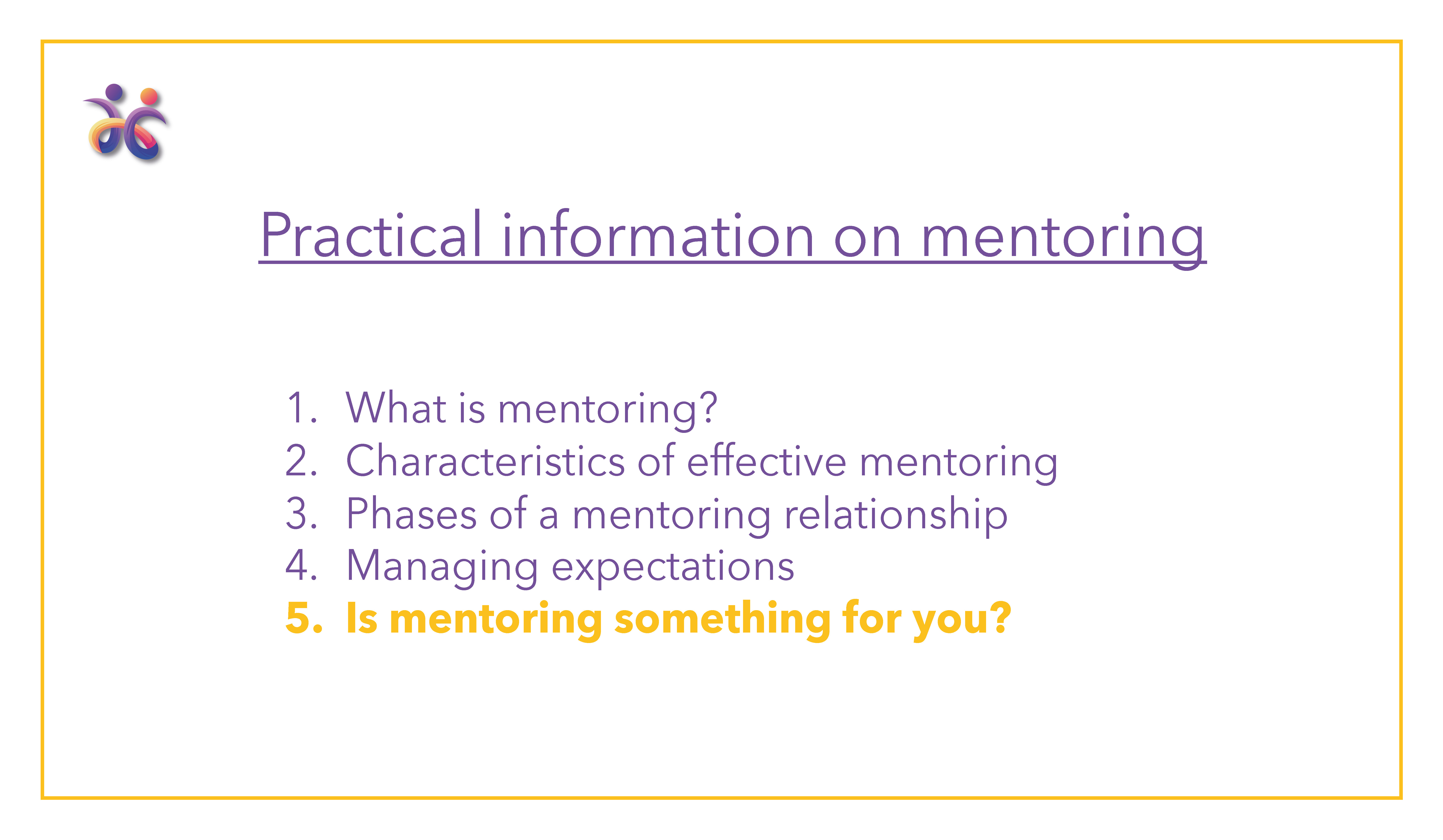
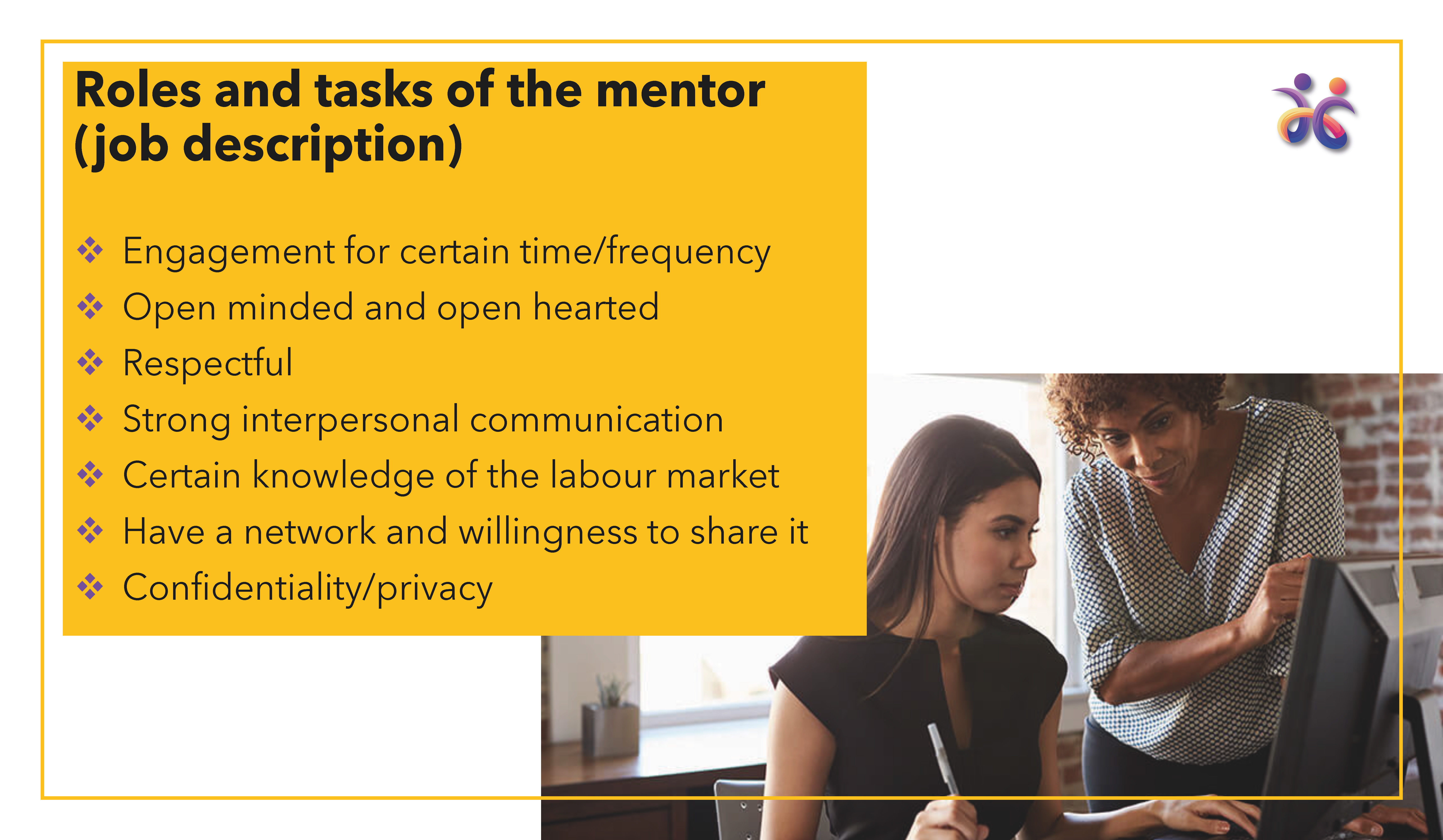
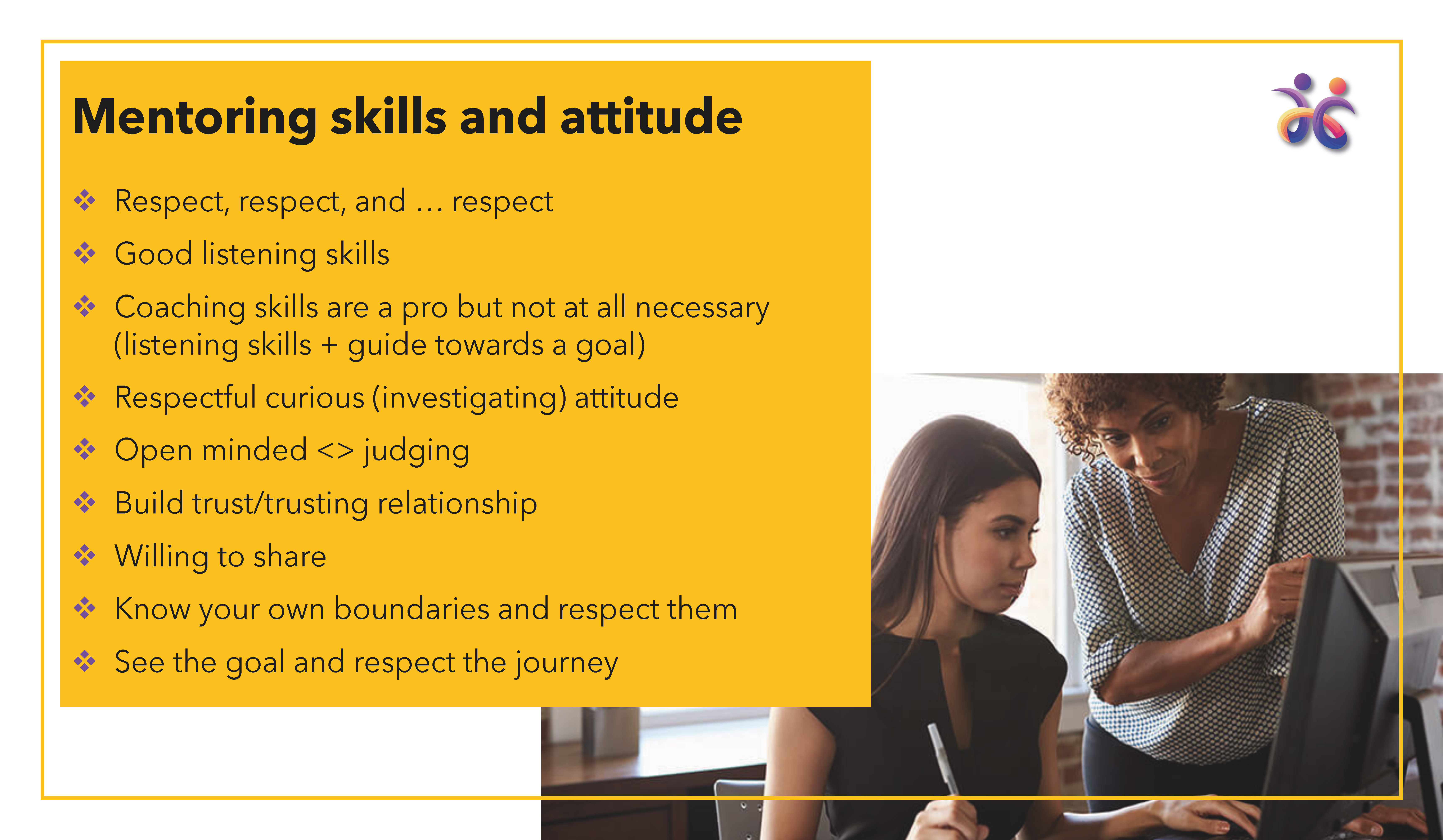
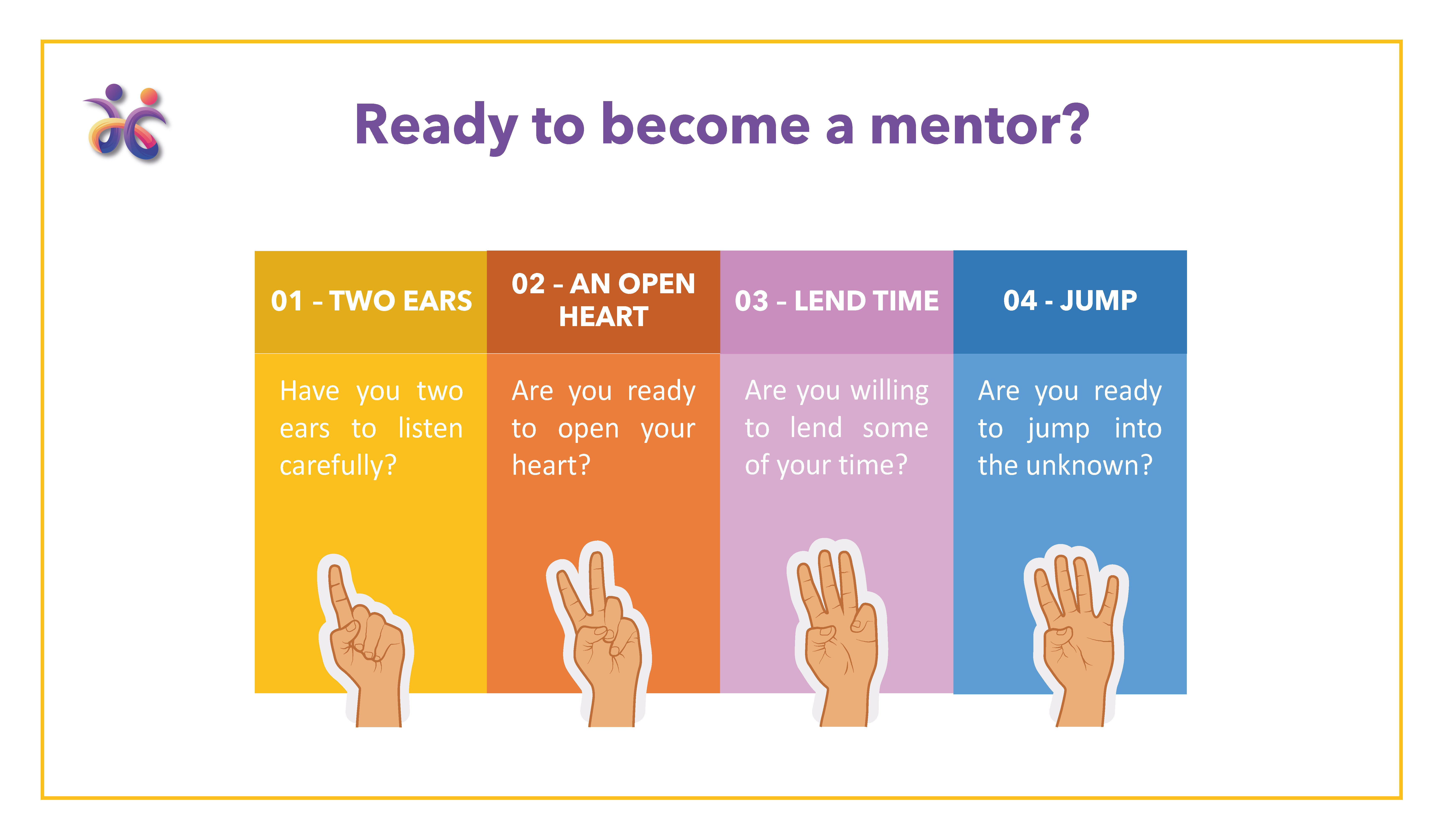




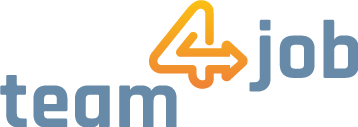
.png)

